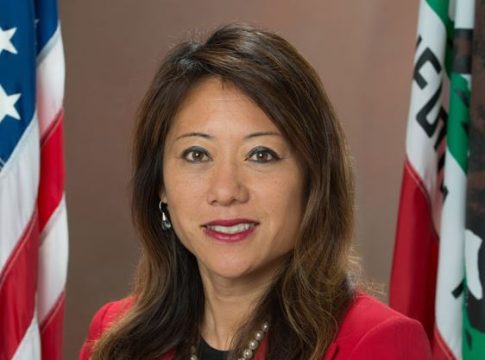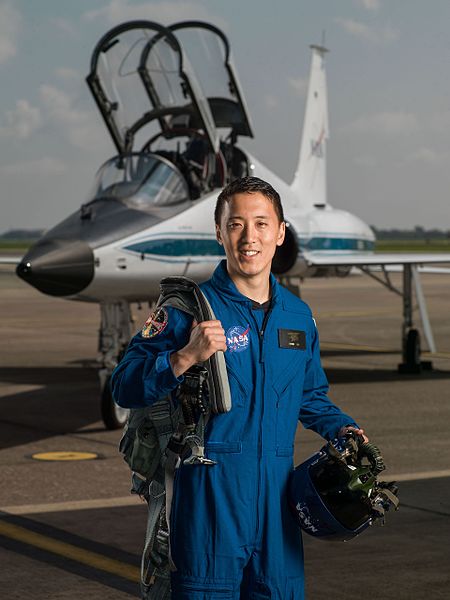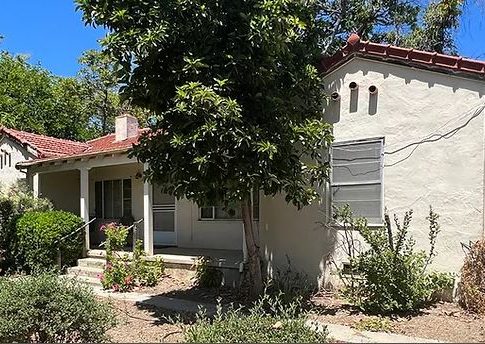Make America Dinner Again attendees in San Francisco participate in a guided conversation. (Photo courtesy of MADA)
By Melissa Young, AsAmNews Staff Writer
What started as a dinner party one night in San Francisco has since become a national effort in bridging political divides.
In the wake of the 2016 presidential election and ensuing political divisions, friends Justine Lee and Tria Chang organized a dinner party of 10 people with different political opinions in order to discuss each other’s perspectives and build empathy.
In the four years that followed, that first dinner grew into hundreds of in-person and online events with thousands of attendees, 12 chapters across the country, partnerships with around 20 organizations and a Facebook discussion group with close to 1,000 members. Now, though a new president is in office, the dialogue is as polarizing as ever, and the dinners are just as needed — if not more.
LATEST STORIES
Make America Dinner Again’s mission is to get Americans to listen to each other’s perspectives through dinner parties featuring respectful conversation and guided activities that Lee and Chang developed. And although 2020 COVID lockdowns halted the in-person aspect, the conversations have continued in video discussions and in the moderated Facebook group.

Challenges and bright moments
Each conversation is different but relies on the same basic principle: The goal is for dialogue, and not debate. The guidelines encourage attendees to develop personal connections and hear new perspectives, rather than argue a particular point of view.
“The news cycle the past four years has felt relentless, and each time a polarizing event occurred, we braced ourselves for added tension in MADA conversations,” Chang told AsAmNews over email. “While there’s some worry and even dread that accompanies this bracing, it also serves as a reminder of why MADA exists: to provide a space where we can engage with others on how they may process and view issues differently.”
One of the most challenging topics for MADA to discuss has been race. Participants have discussed White privilege, police brutality cases, affirmative action, Charlottesville and more.
“It’s deeply personal for many of our members. We’ve noticed it can get tense when folks begin seeing the discussion as an opportunity to change minds or prove a point. Our approach has been to encourage people to share their personal experiences and avoid stating opinion as fact or making sweeping generalizations,” Lee told AsAmNews over email.
Lee and Chang more carefully moderate discussions on race in the online discussion group, and even so, some group members have left for the sake of their mental health, frustrated with views they were hearing.
“This healing work is hard and can be especially difficult if people are ‘meeting’ virtually and are starting from very different understandings of the world,” Lee said. “While we try to foster trust in our group through various ‘getting to know you’ prompts and activities, it takes time and it won’t always stick.”
In early 2020, Lee met racial justice coach and activist Jeanelle Austin, founder of Racial Agency Initiative, and shared that she struggled to facilitate conversations on race in MADA. Austin offered to guide her, and Racial Agency Initiative partnered with MADA to design and facilitate small group conversations on topics such as anti-Asian racism, racial disparities in health and health care and processing public grief over anti-Blackness.
While conversations have been difficult, Lee and Chang have seen friendships form between MADA participants. The Guardian even covered one of these friendships last year.
Lee also recalls that she initiated a discussion about the increase in anti-Asian racism and hate crimes due to China and Chinese people being blamed for COVID-19. After Lee shared how “Chinese virus” and “oriental” were offensive terms to her, a white MADA participant reached out to her and said that she hadn’t realized that “oriental” was offensive and that she would stop using it. She also said she would stop using the phrase “Chinese torture” to describe inconveniences.
Another more recent memorable moment was a Zoom happy hour they held after the 2020 holiday season. There had been heightened tension in the discussion group following the presidential election, but that night, participants chose to skip the politics and shared personal stories instead.
“We talked about things like the first words we learned as children, and foods our various regions of the country were known for. There were smiles on everyone’s faces, and a sense of relief that we could still connect on a human level,” Chang said.
The impact of identity and lived experiences
As Lee and Chang served as MADA moderators, they found that their work both informed and was informed by their personal experiences and identities.
As the youngest of her family, Chang looked to her family members to understand their thinking and emulate them. When her older sisters had a disagreement, she would mediate.
Chang also observed that her experiences as an Asian American may have been part of what drove her MADA work.
“As an Asian American, I’ve often felt like an outsider. Being complimented on my English when it’s the only language I speak fluently, or being asked what country I’m from when I was born here reminds me that for many, I will never appear to belong,” Chang said. “Perhaps part of my subconscious motivation to give so many volunteer hours to building understanding in America was to feel more agency in the direction of our country, to feel more engagement and belonging.”
She adds, “There can also be a sense of feeling ‘in between’ when the conversation around race is largely about how the American experience differs if you are Black versus White. I’ve always identified as a minority and a person of color, but I also understand that my Chinese American family doesn’t carry the legacy of slavery, and that I am safer than Breonna Taylor or George Floyd because of my race and the way I look. I do believe this comes with a responsibility to engage on topics of race: for example, to explain the model minority myth in conversations with people who may only have White family and friends, and don’t see how oppression pits populations against one another.”
Lee relates to the feeling of being caught “in between” and a fear of being seen as an “other.” Leading MADA helped her better understand her Asian American identity and progressive politics.
She organized a conversation with friends from high school to discuss their experiences growing up first-generation Asian American in an Asian-dominant town and how their views on race have developed since high school. She has also had rewarding conversations about race and anti-Blackness with her mother.
“Being exposed to hundreds of perspectives across a variety of political ideologies, backgrounds and cultures over the years has made me see my own biases and gaps in knowledge, fortified my views on issues I care about and made me even more determined to fight for racial justice and equity,” Lee said.
MADA member share their stories
MADA participant Mark Fosdal, who identifies as right-leaning, attended MADA dinners in Seattle and started a new chapter in Bellevue, Wash. He was interested in using the topic of politics to bring people back together following the 2016 presidential election.
His primary role in these discussions has been that of a moderator, and he’s trained others to moderate as well. He wrote a book based on his experiences moderating for MADA and similar events.
Whenever Fosdal facilitates a meeting, he first asks participants to share their stories first, and then dive into a chosen news topic.
“My goal here is to create a space where people can disagree but still respect each other. And when people understand my story, they respect my point of view even though they disagree with me,” he said. “I’m just trying to say, ‘You know what, I understand why your point of view is that because of your life story. I disagree with you, but I can see why you say that and I respect you for that.'”
One of his proudest moments as a moderator was when the group was able to have a civil discussion on abortion following news about Georgia’s abortion ban. He saw it as a compliment both to the group and to his efforts to forge an environment where people were comfortable enough and willing to discuss a deeply polarizing topic.
While moderating MADA discussions, Fosdal found that there would always be a misunderstanding or different understanding of keywords. At one event, people were divided on whether or not they were “proud” to be American. Mark said that upon exploring the topic further, they found that both sides didn’t like the direction the U.S. was going, and that both sides would stand for the national anthem. Their definitions of “proud” were different, but there was common ground. This example illustrated the need to clarify with people what they believe keywords like proud, racism or Black Lives Matter mean.
Mark also stresses that political discussion should take time, and tells people to expand their political palates with the temperament with which they would approach wine tasting. He recommends taking at least 20 to 30 minutes when discussing a political topic.
“You have a life story, and when you talk about racism you share part of your life,” he said. “And for me not to acknowledge that, and to think that you and I can have a discussion in five minutes on racism, is ridiculous. It devalues your life story if I think I can wrap you up and what you think about racism in five minutes.”
Another pair of MADA participants, Elizabeth and Penelope, met each other through the online discussion group and connected outside of the group to discuss Marxism. Both asked to not use their full or real name because they were concerned about their privacy.
Elizabeth, who identifies as left-leaning, felt that the communism exemplified by the Soviet Union, Vietnam, North Korea and China did not reflect Karl Marx’s philosophical ideas. Penelope, who describes herself as a right-leaning centrist or classical liberal, said she was against many of the Marxist ideas, but mentioned that she had not read The Communist Manifesto and would be willing to.
The two decided to read and discuss The Communist Manifesto together. They also discussed views on presidential candidates, immigration, racism, sexism and more, sharing a meaningful and respectful discussion.
From the start, they agreed that they disagreed, but promised to listen to each other. They discovered along the way that they had more in common than they anticipated. For example, they both strongly opposed sexism and racism, even though their views on how to address these issues differed.
“I was pleasantly surprised that we had more in common than we had differences,” said Elizabeth.
Penelope said she felt a general sense of camaraderie and very positive feelings from her discussion with Elizabeth. “I remember feeling incredibly inspired by it, feeling kind of a big sigh of relief that even though there is a lot of cancel culture and division going on out there in the world, there was still this micro-culture of people who were looking to have respectful, meaningful discussions on the other side of the political spectrum,” Penelope said.
What’s next for MADA
After four years of running MADA, Lee and Chang set up MADA to run independently, providing detailed guides and materials for people to host their own dinners or online discussions.
The two say they relied on individual donations for MADA and did not monetize the MADA model or establish a nonprofit to obtain larger grants. They juggled full-time or part-time jobs while leading MADA, and decided to set up MADA to run independently so they focus on making a living.
Now, the two are able to work on other pursuits. Chang edits the Black Allyship column of Mochi Magazine and is contributing to an anthology on the Chinese diaspora, and Lee serves as executive director of Living Room Conversations.
With the detailed guides and material available for everyone, they hope the spirit of MADA lives on.
“We’d love to see more people bring MADA principles like active listening and checking bias into their daily lives and invite their friends and family into the fold, too,” Lee said.
“You don’t need to be a political pundit, an expert facilitator, or smooth conversationalist to be a part of these conversations — you only need to be yourself, and come with an open mind and a desire to listen and learn.”
AsAmNews has Asian America in its heart. We’re an all-volunteer effort of dedicated staff and interns. Check out our new Instagram account. Go to our Twitter feed and Facebook page for more content. Please consider interning, joining our staff, or making a financial contribution to support us.










